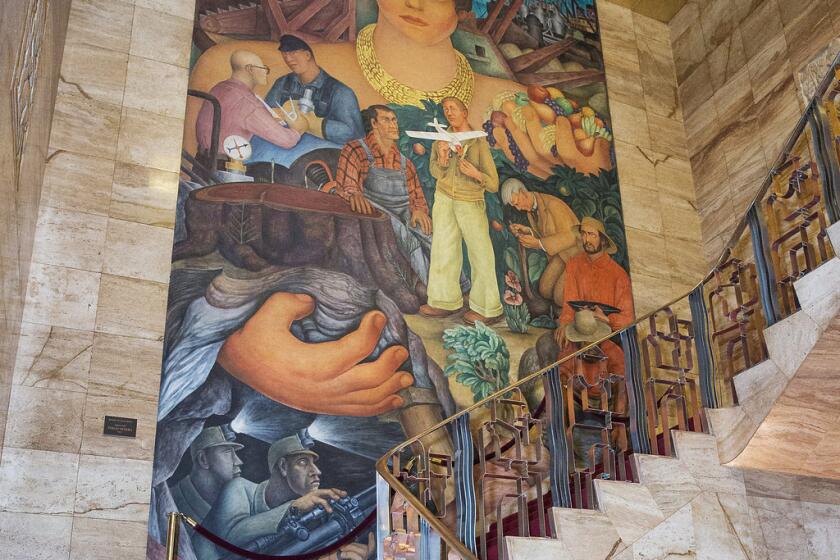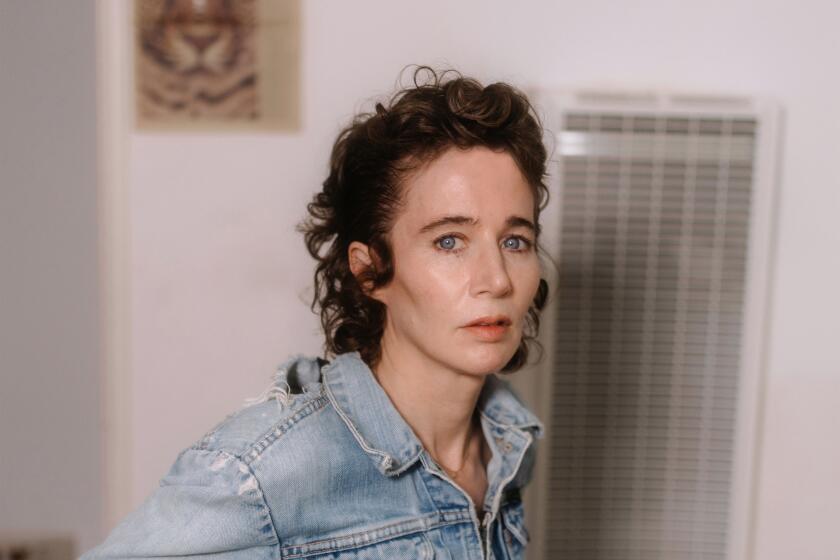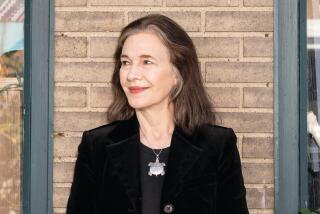The tale of two women confronting crime in San Francisco, 80 years apart
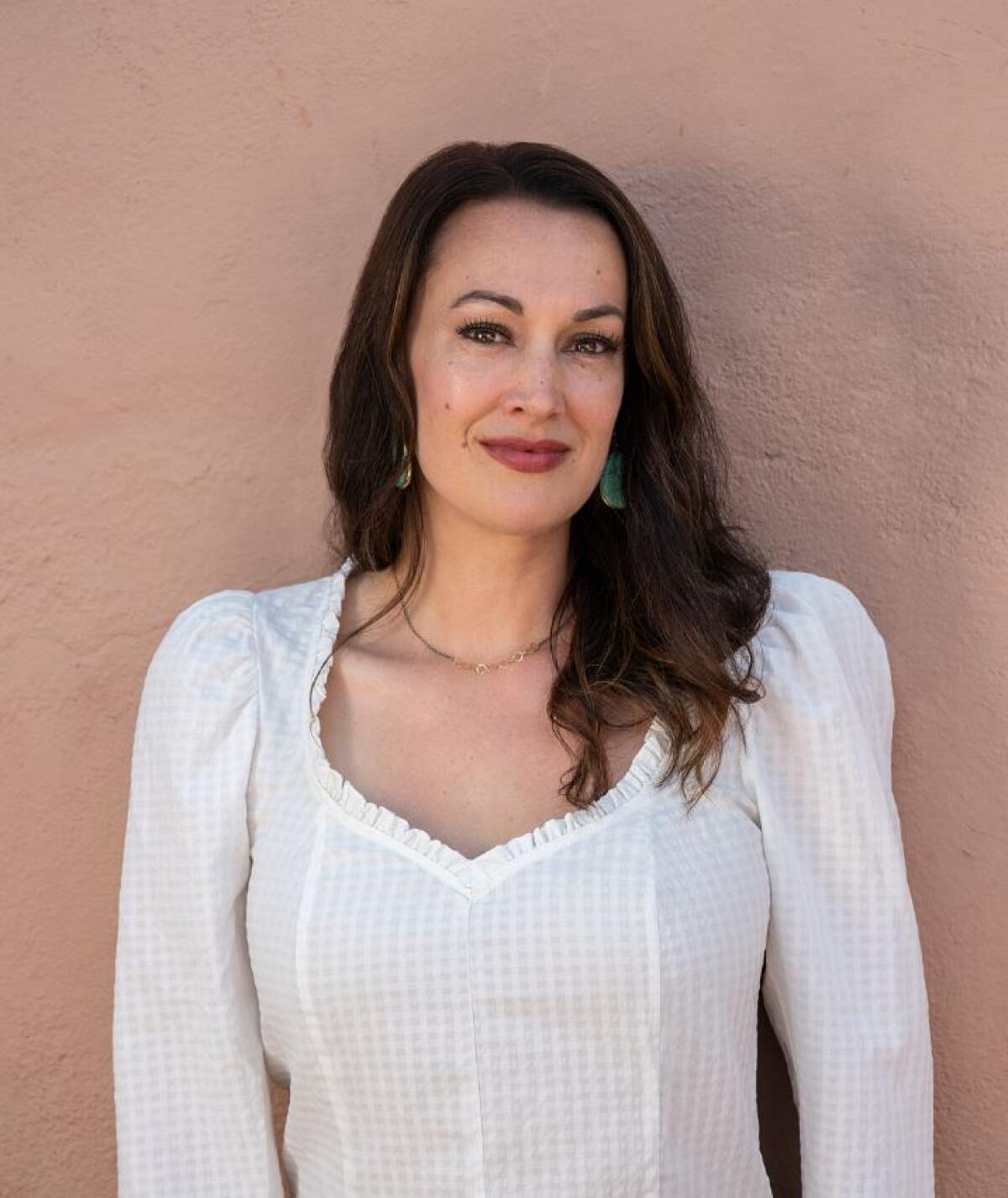
Book Review
The Incorrigibles: A Novel
By Meredith Jaeger
Dutton: 368 pages, $18
If you buy books linked on our site, The Times may earn a commission from Bookshop.org, whose fees support independent bookstores.
Meredith Jaeger’s fourth novel, “The Incorrigibles,” gives us her best rendering of California’s past. The author is a California native with a penchant for immersive period depictions of some of the state’s most desirable cities: San Francisco, Santa Cruz, Los Angeles. Her newest work of historical fiction walks us through two timelines to show the developing San Francisco of the 1890s and the same transforming city in the 1970s.
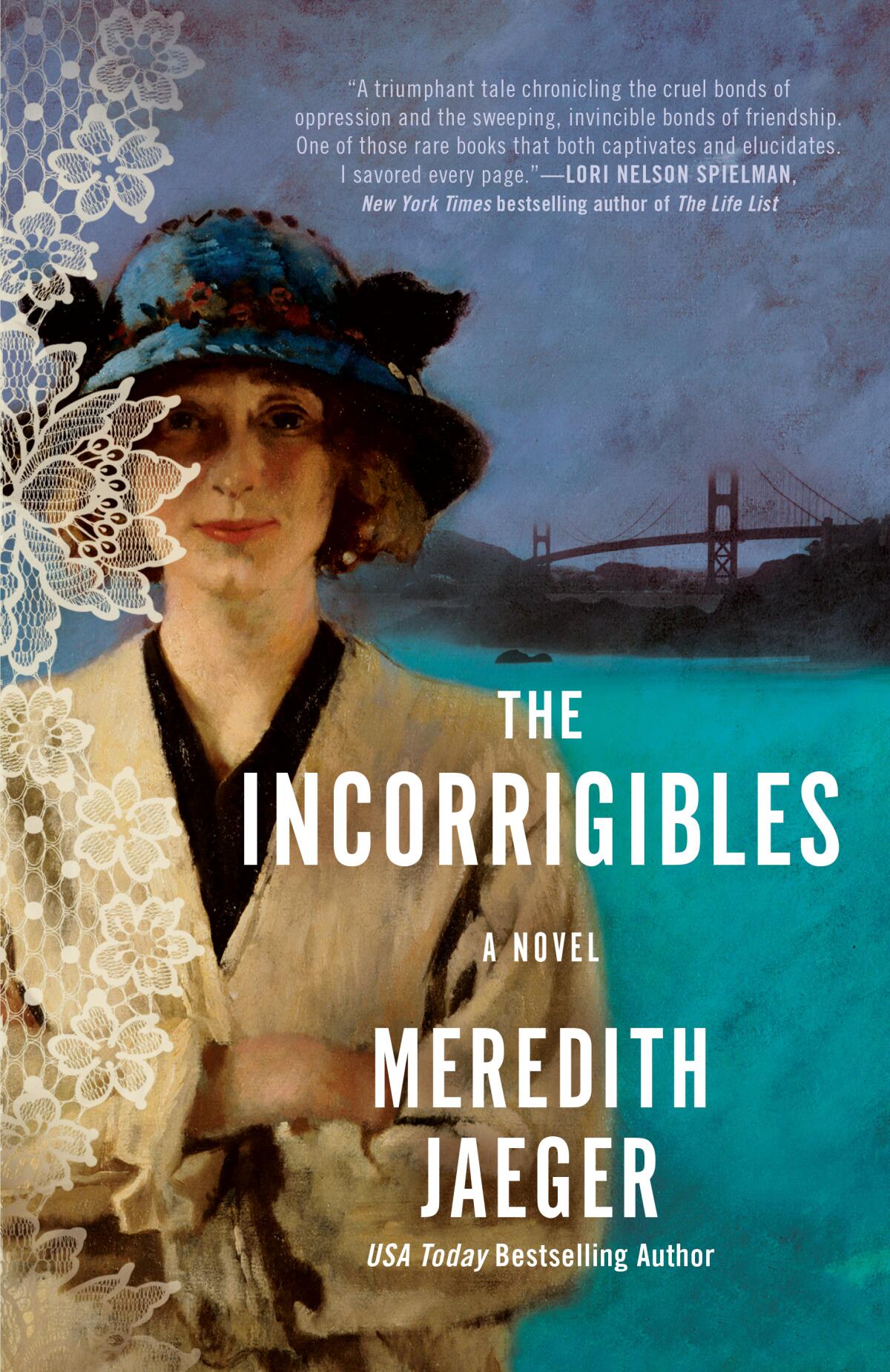
The dual storylines that follow Annie and Judy as they find love — and then find themselves deceived — are evocative of their time periods without being obsessive. Jaeger’s earlier novels insisted on the details too much. As a historian myself, I understand the impulse to adamantly prove you did the research by including everything. Instead of the cataloged lists of details from her debut, “The Incorrigibles” has the defter touch of a more mature writer who knows what she knows and knows how much the readers need to see. Jaeger’s style has bloomed into a gripping voice that launches the story then never pauses for breath.
The novel opens on a woman trying not to cry. Jaeger’s body of work is populated by miserable women and (mostly) villainous men. Her heroines are beautiful, innocent girls trapped in desperate circumstances and miserable lives. They endure abusers and murderers and inconsiderate jerks until they suddenly ascend to happily-ever-after, sometimes seemingly with a wave of a wand. If it reads a little like the Disneyfication of historical fiction, that’s all right. People like Disney. People like happy endings. That good women will come out on top and bad men will get their due is guaranteed in a Meredith Jaeger novel.
The degradation of two powerful, independent Muslim women — one historical, one fictional — echoes 500 years later in the name of our state.
Perhaps because of that, her novels often are described as easy beach reads — unfairly, I think. Her books have always frankly explored deceit, infidelity, abuse and murder. Thematically her historical fiction is dark, more in the vein of crime fiction than courtly historic novels. Each of her characters is a victim of some stripe. In Jaeger’s earlier work, the extreme violence happened between scenes. But in “The Incorrigibles” the violence is in our faces. Among many stark crimes, Annie and Judy both come into direct contact with police brutality, witnessing or enduring violence at the hands of uniformed officers.
Much of Annie’s 1890 storyline takes place inside the cells of San Quentin State Prison. The inherent inhumanity of locking people away and referring to them only as numbers, not with names, is potent. Annie and her fellow female inmates endure groping guards, an opportunistic journalist and the systemic abuse heaped on convicts that continues long after they are released. Annie witnesses two women being raped, and this violence happens in front of us, described clearly. We are forced to sit with it for pages rather than look away.
Miranda July’s book ‘All Fours,’ about a Los Angeles woman’s reckoning with perimenopause, imagines the end of fecundity as a joyful second flowering.
In the 1970s, Judy investigates Annie’s life after spotting her mugshot. She is simultaneously trying to save the South of Market neighborhood from a city government that cares little for the people that already live there. The bravery of several marginalized communities standing up to faceless bureaucracies is sympathetically done, though Judy treads into “white savior” territory.
She watches a peaceful protest become a violent riot when the police arrive, but turns and runs while elderly people of color are injured.
The tension between what Judy is working for and what we know became of South of Market — SOMA, today — is just one of many ways that Jaeger plays with futility and inevitability. Judy and Annie fight for their lives and their communities, but the boxes society tries to put them into — immigrant, poor, woman, wife, divorcée, convict — have strong walls. While the men who harm them have options, the women are thrust along by the tides of fate, desperate to reach a safe shore.
The double standard for men and women is never clearer, and the connection to today stronger, than when a female convict is denied a pardon or commutation while others, including a convicted rapist who has shown no remorse, are granted their freedom. The only woman on the list was convicted of a nonviolent crime and yet was outright denied commutation. Why? In a country where only 8% of sexual assault perpetrators will ever see the inside of a jail cell, her question feels sickeningly relevant.
The novel doesn’t answer that “why” directly, but the totality of the story is the answer. Time and again the female characters are saved by fate, luck, coincidence, the universe — call it what you will. Inside San Quentin and out, the women in Jaeger’s novel save each other when they can and rely on providence — sometimes in the loud ringing of a Gatling gun — when they can’t. Justice and equality are routinely denied them by men who “know better,” and eventually the only solution is for both women to wrest their fates free.
Is that chick lit? I guess, if stories of female agency and empowerment can be so reduced. But if so, it is thoughtful chick lit that asks us to consider how similar California today is to “distant history.”
Valorie Castellanos Clark, a writer and historian in Los Angeles, is the author of “Unruly Figures: Twenty Tales of Rebels, Rulebreakers, and Revolutionaries You’ve (Probably) Never Heard Of.”
More to Read
A cure for the common opinion
Get thought-provoking perspectives with our weekly newsletter.
You may occasionally receive promotional content from the Los Angeles Times.
